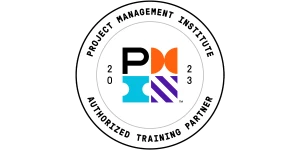Importance of Root Cause Analysis in Healthcare industry
The Healthcare industry underwent a roller coaster journey, especially during the pandemic. The pandemic not only posed trivial challenges to many industries, Healthcare in particular, unveiling many bottleneck situations.
As situation gets under control now, it has raised a need for strategic intervention, making sure we are rise aptly to any emergency or dire situation(s). Yes, Six Sigma has proven itself from time to time as a comprehensive methodology to tackle these bottleneck situations while making the process or the organization efficient and effective.
Many tools and techniques can handle these problem(s). But to do that one has to find the underlying issue and what causes it to better handle the improvement process and resolving the issue. What organizations fail to understand is that these problems, however meager they might seem, focusing at the surface level are just a temporary resolve.
To address and eliminate the problem permanently, a deeper study is study into the problem is required. Thus, calling for a Root Cause Analysis, so organizations do not deviate from the problem, and use temporary fixes to problems, by just looking at them from a surface level. It does not address the underlying issue at hand, so the problem keeps resurfacing.
What is Root Cause Analysis (RCA)?
RCA is an approach that helps us analyze serious problems, before we try to find a solution for them. This helps us decode and weed out the root cause(s). A root cause is a factor whose removal would prevent the occurence of any grave threat or undesired results to the organization. Other factors affecting the outcome do not fall under root causes.
RCA is an essential tool for effective problem solving, as preventing an event from occurring is always preferred over reacting to its adverse results. As organizations aim for long-term solutions as they are profitable, RCA enables them to eliminate problems from its source, ensuring efficiency and growth.
Many tools and methods allow us to perform a RCA. Intrinsically, RCA is all about looking at the core of a process, and finding the issue, when it happens, and why. This tells us more about the unwanted events, or something opposite to expectations. Remember that RCA is a reactive approach. This means it is not applicable unless a process or function produces unfavorable results or triggers detrimental events.
Soon after the unwanted event has taken place, RCA takes record and tracks all essential details. Managers in organizations play the crucial role of imparting knowledge on the importance and application of RCA.
Root Cause Analysis (RCA) Tools
Plethora of tools and methods can help us perform RCA, as there is no perfect way to use the methodology. Thus, this decision rests on quality managers, who decide the best way to conduct RCA. This is either done with pre-existing techniques or brainstorming with the team members. Yes, it is a team effort, as everyone involved in the process has valuable experience that helps with the analysis.
Ishikawa (Fishbone Diagram) is one of the classic tools used for RCA. It enables us to identify possibilities that lead to the effect under investigation. 5 Whys is another popular technique used for RCA, that uncovers the root causes of the problem by a chain of repetitive whys.
You can also use a VSM (Value Stream Mapping), to map the process steps through different sections or departments, so you can identify the defect’s source location. Pareto charts are generally made during brainstorming sessions to prioritize possible causes. Pareto principle is 20% of causes that result in eighty percent of effects. Scatter diagrams are another tool, displaying relations by numerical variables attached to them on graphs.
Why is a Root Cause Analysis important?
Performing an in-depth RCA analysis brings one too many benefits to an organization. Also, long-term and sustainable improvements are sought-after by every business/company, thus all the more reasons to conduct RCA. So, RCA holds significant importance in all industries irrespective of an organization’s size.
Here are some pointers, stating why RCA is so important:
- Deals with the core problem, and helps provide a panacea.
- Gives a permanent solution, not some temporary time and resource consuming fix.
- Cost-effective to the management and to other operations.
- Saves valuable time of employees and the organization which would be spent on fixing recurring minor issues due to the root cause.
- Mitigating risks to the organization.
When Should You Perform Root Cause Analysis?
Regular RCAs ensure maximum efficiency and performance. So, you can do it quarterly, annually, etc. as per your organization’s varied needs. Unless there’s an emergency, requiring immediate attention. But how do you figure out when to conduct RCA? Here are some cases where RCA would be aptly suited:
- Failure or delay in a delivery or a service
- Negative feedback(s) from clients or customers
- Defect(s) in the final product
- Data loss
- Unexpected downtime or frequent delays in the organization
- Uncalled financial or billing adjustments, without any valid reasons
- Ill-define or unnecessary process(s)
Organizations face hurdles and minor glitches daily, but no matter how small, these glitches do hold the potential of causing severe implications. Yes, they can be just random and unnecessary glitches, not worth paying attention to, but are you going to leave your organization to luck?
Thus, investigating root cause(s) improves productivity and also enhances overall performance, subduing risks, and increasing efficiency of the organization and its processes.
RCA enables organizations to have enhanced products/services quality, discover opportunities for growth, overall improvement, and innovation.
Root Cause Analysis In HealthCare industry
The HealthCare industry is one of the most important and looked-upon industries, especially in today’s era of health consciousness and healthy living. Therefore, RCA in the HealthCare industry can prove to be the fine difference between saving a life and preventing a death.
Identification of root problems, and creating permanent solutions can go a great way in improving patient safety, and potentially lead to preventing harm to the patients. This can also prove to be a major game changer for the industry as a whole, and lead to innovation and better patient care services and treatment.
If ignored, minor problems and its underlying causes can cause serious implications. They pose a threat not only to patients but for all professionals working in the HealthCare industry, and also professionals, industries involved with them.
Think of RCA as a preventive measure to fend off any underlying problem, waiting for the right time to strike and tumble the system. As life takes precedence over and above everything. And if RCA enables us to preserve and save lives, then it should receive paramount importance.
Importance of RCA in HealthCare industry
Now you know why RCA is so necessary, and how it solves problems right from its roots. HealthCare is a highly precise industry, with no acceptance for slight miscalculations or errors.
As minor errors or gaps can exist in the equipment, its manufacturing, hospital tools, or in any process, it can lead to catastrophic events in case of emergencies. And what better example than the Covid-19 pandemic. It came uninformed, created a worldwide panic, making all support hopes and eyes set on the HealthCare industry to suppress and cure it.
Truth be told, despite spectacular, heroic, and unwavering hard-work from all HealthCare and related industry professionals, there were inconsistencies, and there were major setbacks too. To save lives, HealthCare professionals need to invest in regular, thorough, and consistent RCAs.
RCA helps healthcare professionals to get a holistic and detailed view of existing problems and its root causes. Thus, enabling them to create permanent solutions, inside out, ensuring patient safety and overall growth of the industry.
Here are some of the way RCA serves HealthCare industry:
- Uncover vulnerabilities existing in systems, which can potentially bring harm to patients.
- Enhancing risk management and related strategies.
- Eliminating the possibility of any unpleasant events.
- Identifying root cause(s) linking to other process(s)/function(s).
- Improving overall performance through highly detailed measures and strategies.
- Identifying processes that require improvement(s).
- Integration of RCA results with related or relevant function(s)/process(s).
- Assessment of strategies, figuring out what works and what doesn’t.
Key Takeaways
Make sure that RCA is thoroughly performed, and conducted without any bias towards any particular solution or benefit. The team should always be in-sync but not in agreement, have different opinions, and nurture innovation.
Never represent any solution, let the analysis take its due course. Peruse the graphs and charts, mind the patterns and relationships, but do not form something without any basis. Have reasonable and achievable improvement suggestions, and never take a responsibility you cannot commit to!
Interestingly RCA can also replicate success! Want to know how?
Some clever quality managing personnel and handful organizations use RCA to drill-down a successful process or spectacular results. So, they can understand what works, and implement the same methodology and techniques to other process(s)/function(s).
So, RCA does not revolve only around defects, risk, threats, and problems. It can also innovatively enable us to search for factors and elements that make a process impressive. This gets luck out of the picture and turns perfection into reality!
Parting Notes
HealthCare professionals need to regularly conduct RCA, even without any need. As prevention is better than cure, and what better industry to implement this saying! Leveraging RCA, all healthcare facilities can dissect problems and provide exceptional will be able to provide optimal treatment and services to all the patients.
Over many years in diverse industries, organizations, process(s), and function(s), RCA has proved itself as one of the best tools to mitigate risk and eliminate major threats. SixSigma.us is one of the leading institutions providing courses that have over time proved its mettle across a plethora of industries, including HealthCare.
Lean Six Sigma also has been proven to be a great program for efficiency and improvement of any process/function. Learn with some of the best industry experts, with practical examples, and a curriculum devised specially for RCA and other important tools. Increase your scope, and widen your perception with SixSigma.us’s sought-after training programs.
SixSigma.us offers both Live Virtual classes as well as Online Self-Paced training. Most option includes access to the same great Master Black Belt instructors that teach our World Class in-person sessions. Sign-up today!
Virtual Classroom Training Programs Self-Paced Online Training Programs







